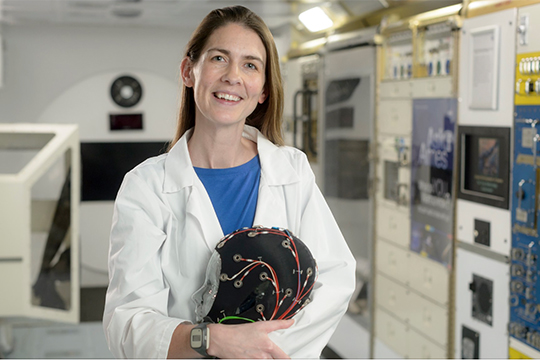|
|
 |

|
 |
 |
NASA’s Dr. Erin Flynn-Evans Interviewed by the Mercury News to Discuss the Negative Effects of Daylight Saving Time and Possible Countermeasures
NASA’s Dr. Erin Flynn-Evans, lead of the Fatigue Countermeasures Laboratory at NASA Ames Research Centerr, was interviewed by the Mercury News for a March 6, 2025 article titled “Daylight saving time is bad for you. Here’s what you can do to soften the blow”. In the article, the Mercury News interviewed several sleep experts to learn about the harmful effects that daylight saving time can have on the human body, and what can be done to “soften the blow”.
Daylight saving time, originally introduced to the United States during World War I as a wartime energy-saving initiative, has been found to result in an increase in car accidents, heart attacks and strokes, and negative side effects on blood pressure and, most obviously, quality of sleep. Sleep researchers, like Dr. Erin Flynn-Evans, are keenly aware that sleep quality is closely related to performance, alertness, communication and interpersonal relationships, so it’s critical that people understand what they can do to help them adjust to the one-hour shift.
Fortunately for us, “This is actually a place where the space research that we do is really helpful for us living here on the surface of the Earth,” said Flynn-Evans. Simple tasks such as managing lighting conditions throughout the day, and maintaining good sleep hygiene and a proper sleep environment, can help people get better sleep during this adjustment period. Though most sleep experts like Dr. Erin Flynn Evans agree that daylight saving time should come to an end, we are still “falling back” and “springing forward” once a year. Luckily, with the sleep strategies developed in the Fatigue Countermeasures Laboratory, we can all sleep a little better after we change our clocks.
Click here to see the full Mercury News article.

Dr. Erin Flynn-Evans, lead of NASA Ames Research Center's Fatigue Countermeasures Laboratory (Credit- NASA) |
|
|